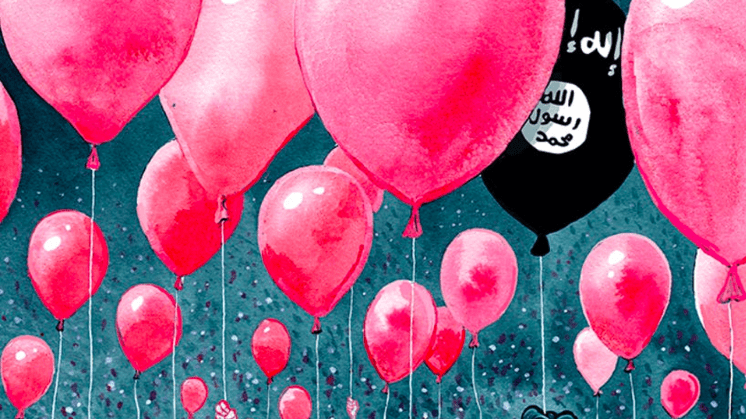Last week marked the anniversary of the Manchester Arena bombing – the deadliest terrorist attack on British soil since the 7/7 London bombings. Twenty-two people were murdered, most of them children and teenagers, at a pop concert targeted with deliberate cruelty. Among them was Saffie-Rose Roussos, just eight years old – the youngest known victim of terrorism in UK history. It was the first time a jihadist attack in Britain had deliberately targeted a music venue, the first of its scale in Northern England, and the deadliest ever on a civilian crowd in that region.
Our love, we’re told, must be stronger than their hate. But I believe, deeply, that this is part of the problem
The attacker used a homemade nail bomb – built to kill, but also to maim and disfigure. While such weapons had been used before in Britain, including by far-right extremists in the 1999 Soho bombing, this marked the first time an Islamist terrorist deployed one in a UK mass-casualty attack. It brought the methods of war zones into the heart of civilian life.
On Tuesday evening, I joined a vigil in London organised by students at King’s College – young people of many backgrounds and faiths, united not by politics, but by principle. They gathered to remember the victims of Manchester, and to honour those killed in Islamist terror attacks around the world – from the UK to Israel, from Iran to India. Alongside speakers of Iranian and Indian origin, I was invited to speak not only as a journalist who has reported on the aftermath of such attacks, but as someone who refuses to ignore what we are truly confronting. What follows is the speech I gave:
I’ve seen too many Islamist terror attacks with my own eyes. As a Jew, as a Briton, and as a journalist, I’ve stood at the wreckage in the aftermath – from Paris to Brussels, from Manchester to London, and in Israel. I’ve seen the twisted metal and the torn lives. I’ve interviewed the survivors. I’ve reported from the streets while the blood was still drying.
And yet, time and time again here in Britain, we’re offered the same advice. Or, let’s be honest, command. Don’t look back in anger. Don’t hate.
Our love, we’re told, must be stronger than their hate. But I believe, deeply, that this is part of the problem. Because what kind of people are we if we feel nothing when children are blown apart at concerts, if we do not burn inside when worshippers are stabbed in synagogues, when partygoers are butchered in fields? If we cannot hate that – what can we love?
Let me be clear: the battle we fight against Islamist extremism is not a war against any religion, any race, or any community. On the contrary – among our ranks in that battle are Muslims, Christians, Jews, Sikhs, Hindus, and those of no faith at all. Good people of all backgrounds, united not by what they are, but by what they reject: barbarism.
Because what we hate, what I hate, is not a people or a faith. It is a violent ideology. One that glorifies death. One that murders children and calls it victory. One that rapes, burns, takes hostages, slaughters – and dares to do it in the name of God. And yes, I hate it.
I hate what they do to us. I hate that they kill us. I hate the belief system that tells them they must. I hate their persistence – their pride in returning again and again to tell us: we will keep killing you. But most of all – I hate that they force us to fight.
War is always brutal. Always dehumanising. It costs not only lives, but something of our souls. And yet, when we are faced with a death cult, a creed of blood and fear, we have no choice. To fight back is not only necessary. Sometimes, it is righteous.
Lately, many of us have watched the tide of opinion shift unjustly against Israel – a nation dragged again into war 600 days ago on 7 October 2023, not by choice, but by necessity. A nation fighting not against civilians, but against Islamist terrorists who slaughtered civilians in their homes, in their beds, at a music festival. They took hostages, and every one of them must be returned. We must force them to return the hostages.
That fight is ugly. It is painful. But it is just.
I’m not much of a poet, but in the middle of thinking through all this – as a citizen, a human being, and someone who has simply had enough – I found myself hearing the echo of Elizabeth Barrett Browning’s famous sonnet: ‘How do I love thee? Let me count the ways.’
So if you’ll indulge me – here is my own version. Not about love, I’m afraid, but about hate. Not about romance. But about the fury of the living who will not bow to the killers of the innocent.
How do I hate thee? Let me count the ways.
I hate you to the depth and breadth and height
My soul can stretch to meet you in the night,
Where shattered lives lie buried in your blaze.
I hate you through the echo of the praise
Your martyrs crave before they go to fight;
I hate your calm deceit, your twisted rite,
Your bloodstained creed, your hunger for death’s gaze.I hate you in the names the dead still wear
From Be’eri to Nice, and London’s heart;
In Manchester, where music met despair,
And Paris fell beneath your evil art.Yet most I hate the fight you make me face, That stains my soul, yet touches not our grace.








Comments